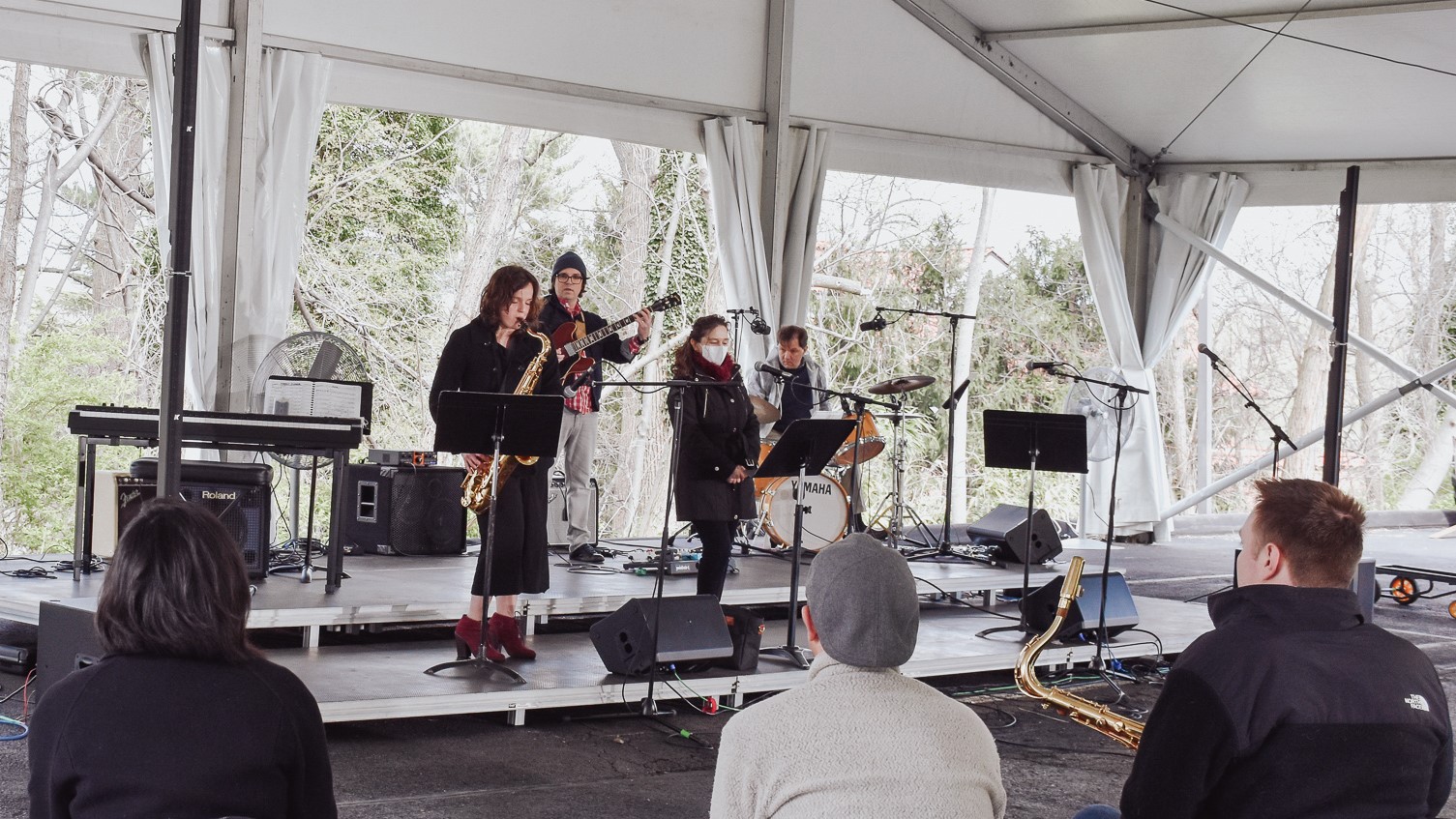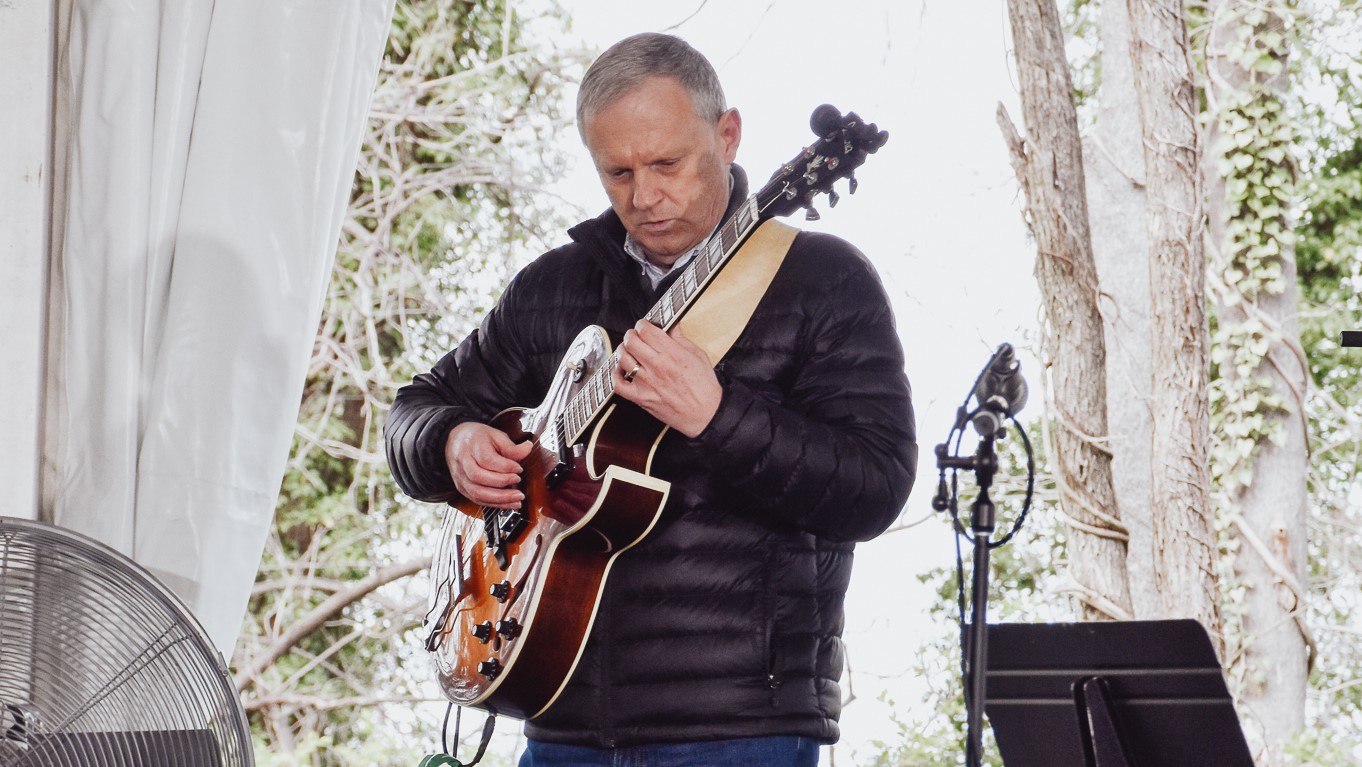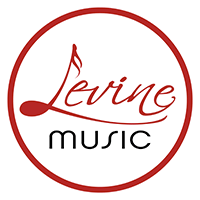“Jazz is messy,” historian Ted Gioia told NPR after the release of the third edition of his book, The History of Jazz. “The trends are complex and often go back and forth in surprising ways. Even in the midst of writing a history of jazz, I wanted to make sure people knew that fitting this thing into a historical progression could mislead them.”

Any attempt to describe the history of jazz in a linear format is misleading because jazz didn’t—and doesn’t—happen that way. A style of music known for its improvisation and spirit, it was born in New Orleans, but took on life in countless new directions. Free jazz, cool jazz, bebop, post-bop, and electro swing: all of these and more have rich, tangled roots that defy delineation—and definition. Here is a sampling of those roots from geographical and musical perspectives, and a glimpse at a few of the jazz musicians who championed the genre.
Geographical and Cultural Origins
Though the history of jazz music is complicated and often debated, the one point historians reliably agree on is the geography of jazz origins. Jazz started as a uniquely American sound, forged in the melting pot of cultures in the south, particularly in New Orleans. The port city was a blend of Creole culture and African traditions, peppered with European influences.
These cultural influences and musical traditions informed the new style of music originally known as “jass.” Developed by the African American community, the nascent music genre caught on and spread, picked up by musicians of other ethnicities and locales. Los Angeles, Denver, Baltimore, New York City, and even mining towns in Colorado became hubs of jazz music. By the Roaring Twenties, jazz was the sound of the decade, and its popularity blossomed throughout the US and overseas.
Musical Origins
While the genre blends the styles of many musical traditions, two key styles of music influenced early jazz: blues and ragtime. The more informal style of blues music and the syncopated rhythms of ragtime meshed together in jazz, along with various other historical influences. The field hollers and work songs of African slaves in the US, the hymns and gospels of the American south, and New Orleans’ popular brass bands all contributed to the development of jazz.

Influential Jazz Composers and Musicians
In the early years of jazz and as it grew into more specific styles like swing and orchestral jazz, jazz composers and musicians played monumental roles in jazz history. Here are just a few of these legendary figures.
- Louis Armstrong, a world-renowned jazz trumpeter and vocalist who popularized swing.
- Fletcher Henderson, an arranger, bandleader, and pianist who pioneered big band jazz.
- Duke Ellington, a jazz pianist and master composer who brought innovation, flavor, and emotional depth to jazz.
- Charles Parker, Jr., a.k.a. “Bird” or “Yardbird,” a saxophonist, bandleader, and composer who led the development of bebop.
- Count Basie, a jazz pianist, organist, bandleader, and composer who popularized big band and orchestral jazz.
These artists’ influences are still felt in jazz today, even as the genre continues to evolve and grow. “The worst thing that could happen,” says Ted Gioia, “is for jazz to end up like the symphony orchestra, where you go to a concert and almost everything they play is 100 years old … History must always be tempered with an understanding of how we use these songs and sounds to revitalize the music ecosystem we currently live in.”
If you would like to honor the history of jazz and participate in its persistence in the modern world, you can further explore the genre in our jazz programs at Levine! Levine’s Jazz Program provides students of all instruments, ages, and levels with opportunities to develop their musical skills and explore the art of jazz through ensembles, group classes, and private lessons.
Join us for regular jam sessions, master classes, and performances devoted to appreciating and understanding this most vibrant artform. Whether you are a traditionally trained student who is curious about the world of jazz or you are an experienced jazz musician looking to expand your skills, Levine is the place to take your skills to the next level.
Here at Levine Music, our core values—excellence and opportunity—infuse everything we do. Learn more about our program areas and upcoming performances, and donate today to help us bring lifelong joy and inspiration through music!
